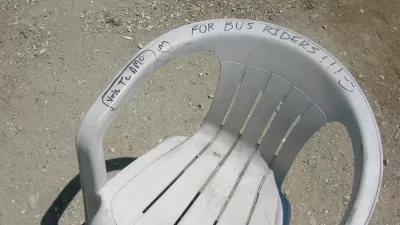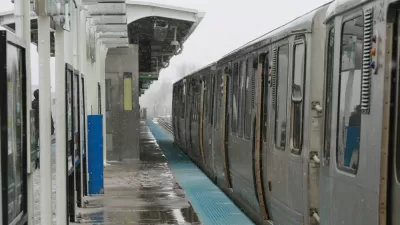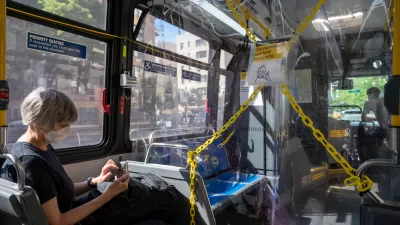A new feature-length documentary film raises the question of whether public transportation is a civil rights issue.

Mass Transit reports from a statement by the Greater Dayton RTA: "The feature-length documentary 'Free To Ride,' which tells the story of the years-long disagreement between the Greater Dayton RTA and the city of Beavercreek to expand public transportation in the community, will debut Feb. 17 at the Washington D.C. Independent Film Festival."
"The Beavercreek City Council initially blocked RTA’s 2011 proposal to extend its service onto Pentagon Boulevard to access jobs and educational opportunities there," explains the post. "The council’s decision was later challenged by [Leaders for Equality and Action in Dayton] LEAD. Ultimately, the federal government threatened to take back more than $10 million dollars in federal funding if Beavercreek blocked public transportation."
LEAD is also currently involved in an ongoing battle over transit planning in Miami Township, Ohio, over the location of bus stops near the Dayton Mall. The trailer for "Free to Ride," which lays out the stakes of the controversy in Beavercreek, can be played below.
The Official Trailer: Free To Ride from Kirwan Institute on Vimeo.
FULL STORY: Documentary Highlighting Dayton RTA Debuts at National Film Festival

Americans May Be Stuck — But Why?
Americans are moving a lot less than they once did, and that is a problem. While Yoni Applebaum, in his highly-publicized article Stuck, gets the reasons badly wrong, it's still important to ask: why are we moving so much less than before?

Using Old Oil and Gas Wells for Green Energy Storage
Penn State researchers have found that repurposing abandoned oil and gas wells for geothermal-assisted compressed-air energy storage can boost efficiency, reduce environmental risks, and support clean energy and job transitions.

Placekeeping: Setting a New Precedent for City Planners
How a preservation-based approach to redevelopment and urban design can prevent displacement and honor legacy communities.

Colorado Lawmakers Move to Protect BRT Funding
In the face of potential federal funding cuts, CDOT leaders reasserted their commitment to planned bus rapid transit projects.

Safe Streets Funding in Jeopardy
The Trump administration is specifically targeting bike infrastructure and other road safety projects in its funding cuts.

Six Reasons Why Housing Is a Human Right
Is housing a human right? A law professor shares six reasons why it should be, from its role in protecting other rights to global recognition and U.S. legal traditions. As public support grows, could housing be the next right written into law?
Urban Design for Planners 1: Software Tools
This six-course series explores essential urban design concepts using open source software and equips planners with the tools they need to participate fully in the urban design process.
Planning for Universal Design
Learn the tools for implementing Universal Design in planning regulations.
Heyer Gruel & Associates PA
City of Moreno Valley
Institute for Housing and Urban Development Studies (IHS)
City of Grandview
Harvard GSD Executive Education
Salt Lake City
NYU Wagner Graduate School of Public Service
City of Cambridge, Maryland




























